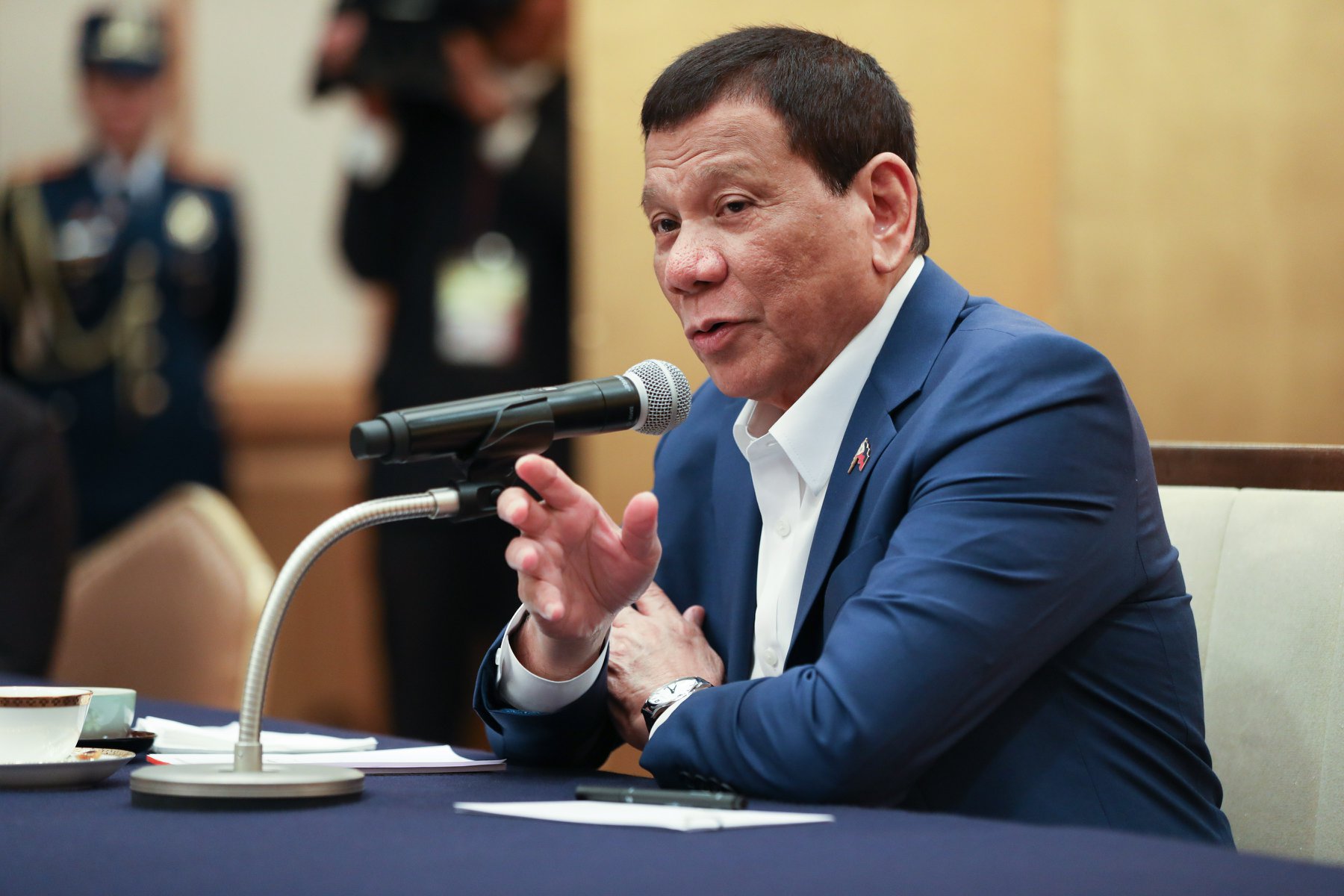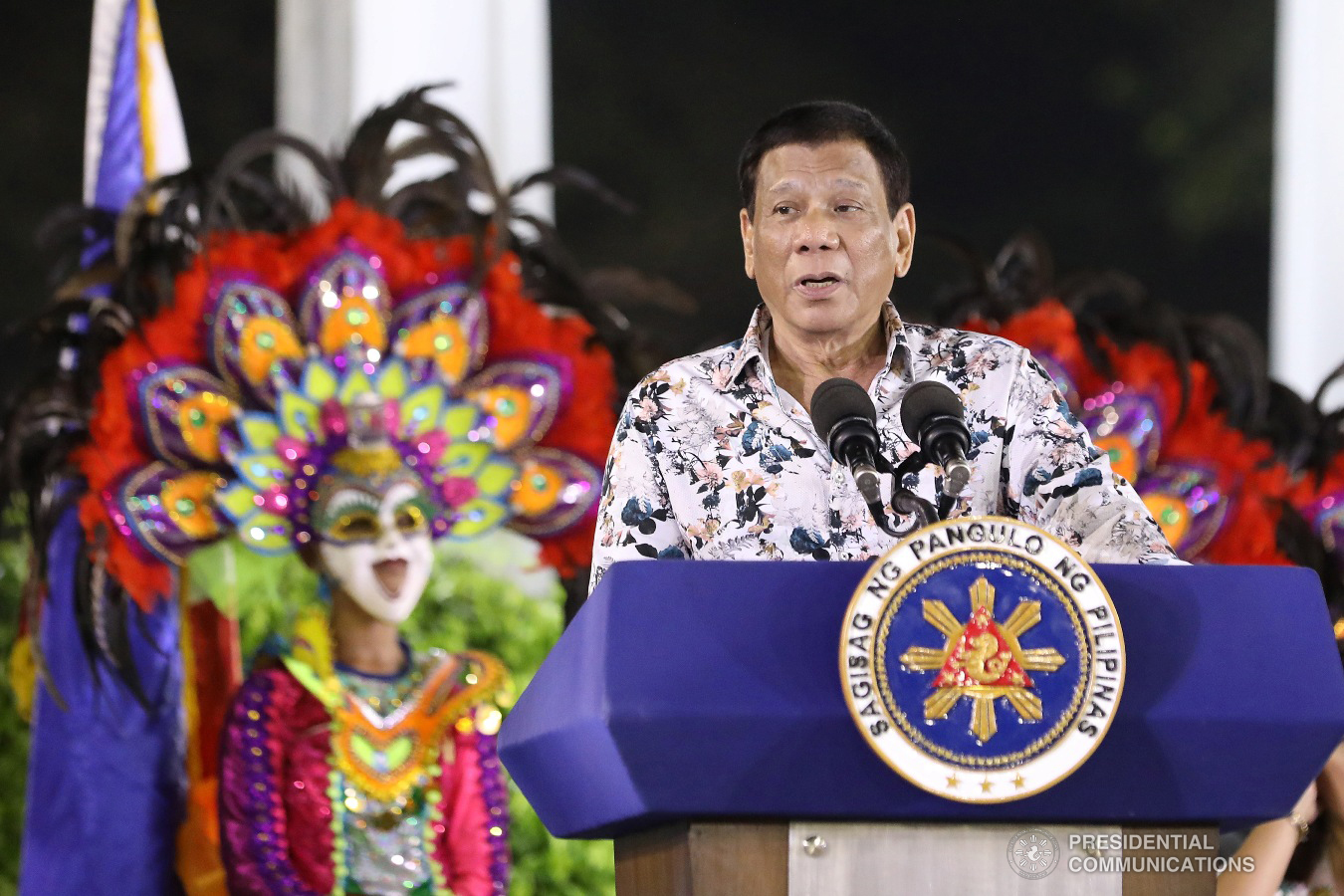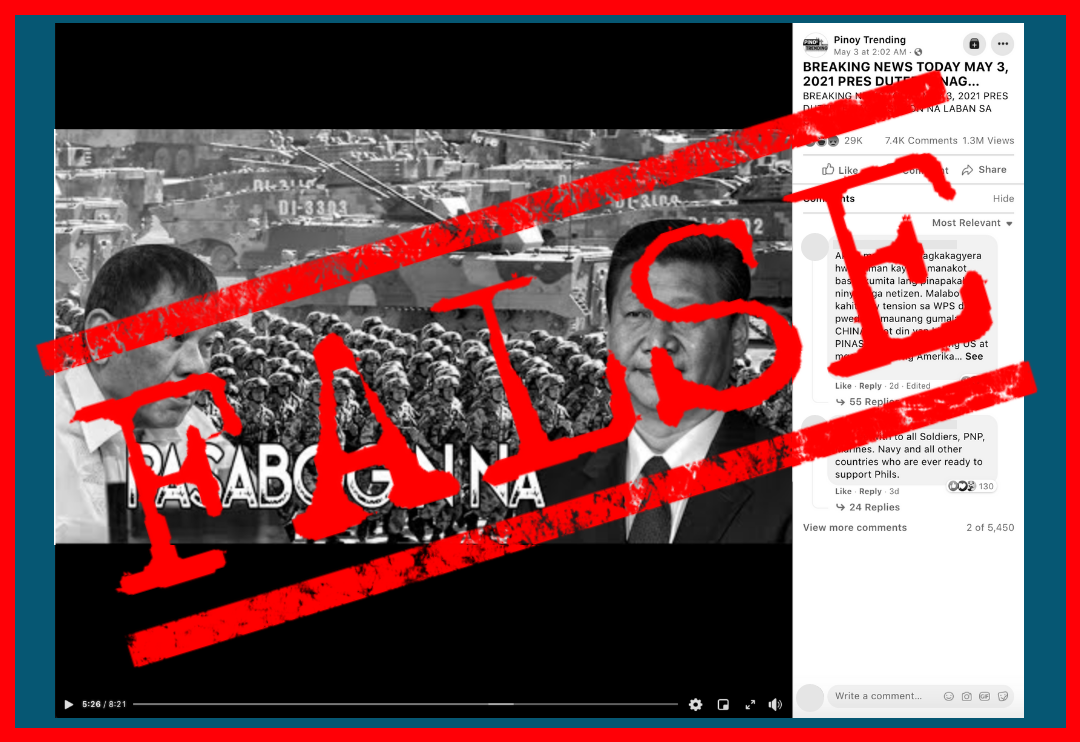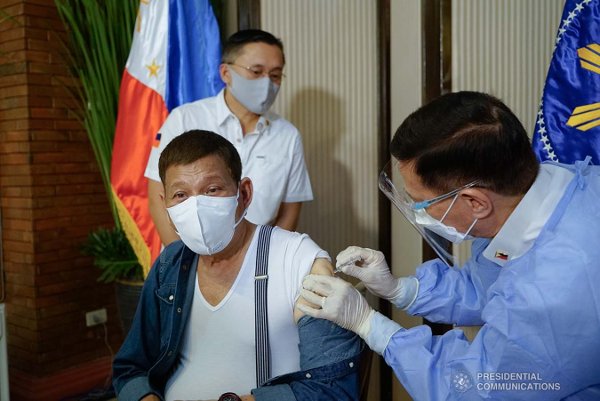President Rodrigo Duterte grossly exaggerated the daily drug fatality figure in the United States and misquoted former U.S. President Barack Obama in his speech in front of the Filipino crowd in Tokyo, Japan.
STATEMENT
On May 30, Duterte recalled his tirade against Obama on alleged extrajudicial killings in the Philippines in 2016:
“Ngayon, hinahabol ako ng Amerika noon. Kaya kami nag-away. Kaya pinu****-i** ko si Obama. Talaga, sinabi ko, ‘p***** i****, l**** ka. ‘Wag mo akong pakialaman. In a presscon sabihin mo na, ‘we will prosecute you for extrajudicial killing.’”
(Now, America went after me then, that is why we had a conflict. That is why I cussed at Obama. Yes, I said son of a whore , l**** ka. Do not meddle. In a presscon you would say, ‘we will prosecute you for extrajudicial killing.’ )
Source: RTVMalacanang, Meeting with the Filipino Community (Speech) 5/30/2019, May 30, 2019, watch from 30:25 to 30:52
He added:
“Tama ka na, sabi ko, ‘bantayan mo ‘yang iyo kay mas deadly ‘yan (I said enough, ‘you watch your own because that is more deadly’).’ There are 63,000 lives lost in America every day sa droga.”
Source: RTVMalacanang, Meeting with the Filipino Community (Speech) 5/30/2019, May 30, 2019, watch from 30:52 to 31:06
FACT
Duterte is wrong on both claims.
Obama never said “we (the U.S.) will prosecute you (Duterte) for extrajudicial killings.”
Duterte called Obama “son of a whore” when he was asked what he would do if his then American counterpart raised the issue of extrajudicial killings in the Philippines during the Association of Southeast Asian Nations (ASEAN) summit in 2016.
On the last day of the G-20 Leaders’ Summit in Hangzhou, China, in September 2016, Obama said:
“We recognize the significant burden that the drug trade plays not just in the Philippines, but around the world. And fighting narco-trafficking is tough. But we will always assert the need to have due process and to engage in that fight against drugs in a way that’s consistent with basic international norms.”
Duterte is also wrong in claiming that the number of drug deaths per day in the U.S. has reached 63,000.
According to the White House’s Opioid Crisis report, nearly 175 daily deaths from drug overdose were recorded in 2016.
The closest figure to Duterte’s incorrect data is that of the U.S. Center for Disease Control and Prevention (CDC), which recorded 63,632 deaths due to drug overdose for that same year.
A CDC report released this January recorded 70,237 drug-related deaths in the U.S. in 2017. Opioids accounted for 47,600 victims or 67.8% of these drug-related deaths.
Latest data from the National Center for Health Statistics, the main health statistics agency provider in the U.S., show an increase in the country’s drug-related deaths in the U.S. from 1999 to 2017.
The NCHS has recorded 66,986 drug overdose deaths based on records collected from November 2017 to November 2018.
Opioids, sometimes called narcotics, are medications prescribed by doctors to manage persistent or severe pain. They are used by people with chronic headaches and backaches, by patients recovering from surgery or experiencing severe pain, according to the American Society of Anesthesiologists.
Opioids can have serious side effects and can lead to addiction. Codeine, fentanyl and morphine are among the many types of prescribed opioids.
In a speech in his hometown Davao City in 2017, Duterte told the crowd that he felt he was on “cloud nine” after using fentanyl, a classified opioid, prescribed by his doctor as a pain reliever for his spinal injury from a motorcycle incident in 2013.
Fentanyl is considered a “dangerous drug” under Republic Act 9165 or the Comprehensive Dangerous Drugs Act.
Classified as a “Schedule 1” drug under the 1961 United Nations Single Convention on Narcotic Drugs, as amended by the 1972 protocol, Fentanyl “may have currently accepted medical use in treatment in the Philippines, and has high potential for abuse that may lead to severe psychological or physical dependence,” according to the Dangerous Drugs Board.
Sources
RTVMalacanang, Meeting with the Filipino Community (Speech) 5/30/2019, May 30, 2019
The Obama White House, President Obama Holds a Press Conference, Sept. 5, 2016
The Obama White House, President Obama Holds a Press Conference, Sept. 8, 2016
Philstar.com, Duterte apologizes to Barack Obama, Sept. 8, 2018
ABS-CBN News, Duterte calls Obama a ‘son of a w****’, Sept. 5, 2016
Rappler.com, Obama-Duterte meeting: Sea dispute ruling, human rights on the table, Aug. 30 2016
RTVMalacanang, Question and Answer – Davao City 9/5/2016, Sept. 5, 2016
White House, The Opioid Crisis, n.d.
Centers for Disease Control and Prevention, Drug and Opioid-Involved Overdose Deaths — United States, 2013–2017, January 4, 2019
Centers for Disease Control and Prevention, About CDC 24-7
American Society of Anesthesiologists, What are Opioids
ABS-CBN News, Duterte on Fentanyl use: Felt like cloud nine, Feb. 10, 2017
Philippine Drug Enforcement Agency, Republic Act 9165
Bureau of Food and Drugs Administration, Comprehensive Dangerous Drugs Act of 2002
Dangerous Drugs Board, Board Regulation No. 1, Series of 2014
Dangerous Drugs Board, Annex A — Philippine Schedules of Dangerous Drugs
Philippine Medical Association, Guidelines in Prescribing Dangerous Drugs, Oct. 3, 2018
World Health Organization, Single Convention on Narcotic Drugs, 1961 (Amended), n.d.
Centers for Disease Control and Prevention, New Data Show Growing Complexity of Drug Overdose Deaths in America, Dec. 21, 2018
Centers for Disease Control and Prevention, Provisional Drug Overdose Death Counts, Retrieved June 11, 2019
Centers for Disease Control and Prevention, Data Brief 329. Drug Overdose Deaths in the United States, 1999–2017, November 2019
(Guided by the code of principles of the International Fact-Checking Network at Poynter, VERA Files tracks the false claims, flip-flops, misleading statements of public officials and figures, and debunks them with factual evidence. Find out more about this initiative and our methodology.)





